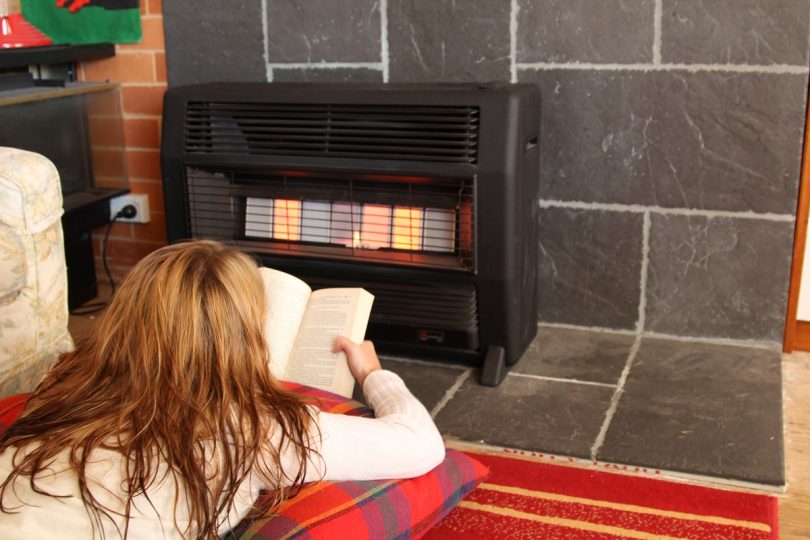
Gas heaters should be serviced every year for efficiency and safety. Photo: Supplied.
The winter solstice has passed, marking the official start to winter, and as the temperature drops and 70,000 Canberra households fire up their gas heaters, Evoenergy is reminding Canberrans that now is the time to have their gas appliances checked.
Gas heaters unused for six months of the year can build up dust, debris and even insects’ nests so it’s important to service them. Some superficial cleaning can be done by homeowners, but Evoenergy’s Gas Manager Bruce Hansen recommends calling a professional for an annual service of all gas appliances, particularly heaters.
“Gas appliances have stringent requirements to ensure that consumers can safely enjoy the benefits of gas heating, hot water and cooking, but like any piece of equipment there are basic maintenance requirements to ensure continued safe and effective operation,” Bruce said.
“It’s important that gas appliances are checked every year and maintained by a qualified gas appliance technician or gas fitter. Heaters and other appliances with intermittent use can build-up dust over the warmer months and in extreme cases this can become a fire hazard.”
Master Plumbers Association Board Member Robert Edwards agrees and says winter heater maintenance is more than a superficial clean. A gas fitter will check for leaks, check safety devices, operating pressure and ignition.
“A qualified gas fitter will test the gas pressure and assess the flame to make sure it sits in the right spot in the burner to ensure your heater is combusting properly,” Robert said.
Heaters not combusting properly can produce carbon monoxide, which if released into your house rather than outside can be hazardous and even fatal.
“When you breathe carbon monoxide mixed with oxygen, the body absorbs the carbon monoxide at a much faster rate than the oxygen, and once it is in the bloodstream you can get very sick or become unconscious, even at low exposure,” Bruce warned.
Master Plumber Robert agreed, not only for safety but saving money as well: “It is important to get into the habit of regular winter maintenance, particularly as appliances age. Regular maintenance will save money in the long run. Heaters that are not combusting properly will still use the same amount of gas but won’t produce the best amount of heat.”
Evoenergy is also warning customers to only use LPG (propane) cylinders as they’re intended – outdoors, with maximum ventilation, and always following manufacturer’s instructions.
“As it gets colder, it can be tempting to bring this equipment inside, but please don’t do it, it’s just too dangerous. Propane appliances are quite safe when they are used as designed and approved and are piped so that the cylinder is situated outside, but never use a propane cylinder indoors,” Bruce said.
In addition to annual servicing and maintenance, users should always follow up on any gas leaks or potential gas hazards.
“Although both natural gas and LPG are clear and colourless, you’ll definitely be able to notice a leak due to smell,” Bruce said.
“Some people describe natural gas as having a ‘rotten egg’ smell due to the added mercaptan compound, but you might also recognise it as rotten cabbage, a strong sulphuric or ‘off’ smell or a skunk-like smell.
“If you suspect you have a gas leak inside the home, ventilate the area well and call a licenced gas fitter as soon as possible. For a serious leak that you can hear, or if you suspect you have a gas leak outside at the meter or underground piping, please call Evoenergy on 13 19 09 and one of our technicians will come and investigate.”
For more information or to download a gas safety fact sheet, visit Evoenergy
Evoenergy works in close collaboration with the ACT Master Plumbers Association to encourage safe gas practices and raise awareness of gas safety.












